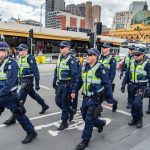Time to Overhaul Unfair Criminal Confiscation Laws Nationally

Criminal confiscation laws allow government to seize wealth derived – or suspected to be obtained – from criminal activities. In place in all Australian jurisdictions, these types of laws are often said to be draconian in their application, with none more so than those that apply in Western Australia.
But, that all might be about to change soon, as the WA government tabled a report on 4 December that recommends a complete overhaul of the state’s notorious criminal property confiscation laws, with attorney general John Quigley outlining its recommendations are to be considered.
Announced in September 2018, the review of the laws was carried out by former WA Chief Justice Wayne Martin. And the ex-top judge asserts that the relevant legislation should be repealed, and new laws be drafted.
In his report, Mr Martin explains that much of the criticism around the Confiscation of Proceeds of Crime Act 1989 (WA) (the Act) came from public authorities that are tasked with administering its provisions. And he added that the confiscation regime actually sets up “two classes of justice”.
Laws like these that allow the state to confiscate citizens’ assets are said to undermine the presumption of innocence, as well as penalise innocent members of an offender’s family. And critics hope that the move in WA will be mirrored throughout the country.
Breathtaking in their reach
“The laws reverse the burden of proof and allow police and prosecutors to seize an alleged criminal’s family assets instantly without warning,” Civil Liberties Australia (CLA) CEO Bill Rowlings told Sydney Criminal Lawyers.
And he outlined that the laws frequently punish the spouse and children of an offender. “Their house is no longer theirs, they can’t access their bank accounts, their cars are seized, and so on,” he explained, adding that in some cases “the laws have prevented children from attending uni”.
Civil Liberties Australia has been campaigning against the reach of Australian criminal confiscation laws over the past 15 years. And it maintains that considering the seriousness of the Martin report findings, all jurisdictions must redraft proceeds of crime, confiscation and unexplained wealth laws.
The organisation further maintains that while these laws are supposed to target large criminal networks and drug operations, they’re actually “hitting the wrong targets”.
“New laws need sensible provisions to allow non-criminal family members – who are most often wives and children – to live their normal lives until any court case is decided,” Rowlings said. And those with seized assets should have enough funds to defend themselves both at trial and appeal.
The WA regime
The Act allows WA authorities to confiscate property that’s been obtained via a criminal offence, used to commit a crime, is derived from criminal activity, is owned, controlled or given away by a drug trafficker, or is equal in value to a person’s unexplained wealth.
These laws apply when an individual has committed a confiscation offence as defined under section 141 of the Act, which for the most part involves a crime committed anywhere in the country that holds a penalty of at least 2 years imprisonment.
The Act permits WA police to apply for a freezing notice, while the Director of Public Prosecutions (DPP) can apply for a notice or an order. This allows for assets related to a crime or a drug trafficker to be confiscated. While a court can order that an amount be paid when wealth is ruled unexplained.
If a defendant whose assets have been seized is subsequently found guilty then the DPP can lodge documents with the courts to verify the confiscation and it can then bank the proceeds.
Martin’s misgivings
The Martin report singles out two major issues with how this system is operating. The first is that it sets up “different legal rules and rights depending on the ground upon which property is confiscated”, without any proper justification for doing so.
As an example, the former judge points out that subsection 82(3) of the Act provides a right of objection to the confiscation of crime-used in property on the grounds of undue hardship, however it creates no equivalent right if property is confiscated “in substitution for crime-used property”.
The second major issue is the “two classes of justice” point. It relates to how the Act “creates very different rights and obligations depending on whether the process is initiated by a freezing notice or a freezing order” for no apparent reason.
A case in point
Martin also takes aim at the ability of the WA laws to allow for the confiscation of a home in relation to drug trafficking, while it’s still being occupied by an innocent partner who is caring for children, even if they had no idea that their spouse was involved in the drug trade.
In the case of Nguyen Thi Thanh Tam, her house was confiscated whilst she was raising her children. This was done after Mr Tam and his girlfriend were arrested for drug offences in 2012. However, he’d left the family home in 2005 to live with the other woman.
And Mr Tam was of the belief that he’d already signed over ownership of the house to his wife and children years prior and he’d actually stopped contributing to the mortgage in 2010. However, the court found that the Act forced it to confiscate the house regardless.
The laws in NSW
Criminal confiscation laws are contained within two pieces of legislation in this state. The Confiscation of Proceeds of Crime Act 1989 (NSW) allows for the seizure of the proceeds or benefits derived from a serious offence, as well as any property used or connected to such a crime.
This legislation provides for the issuing of three types of orders related to crime-used property, benefits derived from drug trafficking offences, or those derived from non-drug offences. And the NSW DPP, the ICAC commissioner or the NSW police commissioner can apply for them.
And then there’s the Criminal Assets Recovery Act 1990 (NSW). It allows the NSW Crime Commission to confiscate property- without requiring a conviction – if the NSW Supreme Court finds it “more probable than not” that the person in its possession has engaged in serious crime related activities.
The provisions of this legislation include restraining orders to prevent the disposal of property, asset forfeiture orders so property can be seized, orders for the payment of value assessed to be the proceeds of crime, and orders requiring the payment of wealth that cannot be explained.
Cross border seizures
However, we’re unlikely to see any reforms around these types of laws at the federal level just yet, as the Coalition government only recently enacted new unexplained wealth provisions, which broadened the application of these laws.
Unexplained wealth laws allow governments to seize citizens’ assets, unless their legitimate origins can be proven. That’s if there’s suspicion that they were derived from criminal activity. And it’s even if the owner of the wealth hasn’t been charged with – let alone convicted of – an offence.
The Unexplained Wealth Legislation Amendment Bill 2018 (Cth) expanded federal laws, which allow for restraining orders to prevent an individual from disposing of unexplained wealth, as well as court orders that require the government be paid an amount of wealth deemed unlawful.
Since the amendments were passed, these Commonwealth orders can now be issued in relation to relevant state and territory offences. The new laws also allow for cross-jurisdictional cooperation on such matters, as well as for federal, state and territory governments to share in the seized wealth.
“Governments are turning DPP offices into profit centres,” Mr Rowlings warned. “They appoint more prosecutors, so the extra prosecutors can concentrate on asset seizure and confiscation to make a profit for the office and the government.”
“These federal provisions – like their direct state counterparts – are iniquitous and have no place in a society under the rule of law,” the civil liberties advocate concluded.







